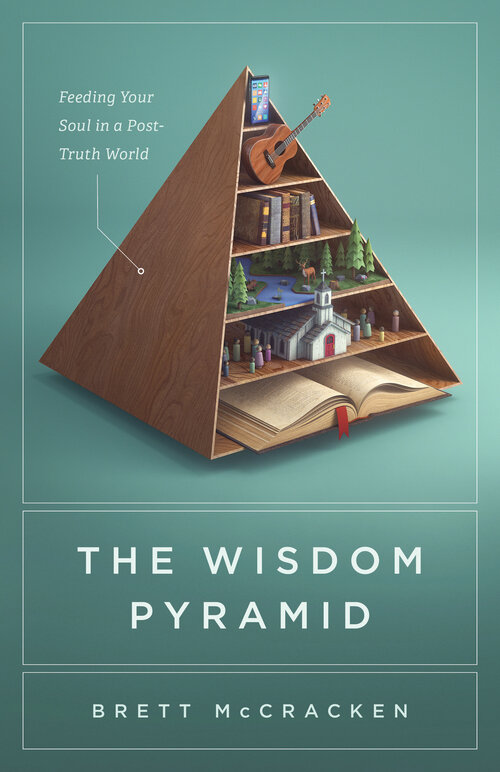I have a love-hate relationship with social media.
I love the way it connects me with people and lets me stay in touch with friends and family all over the world. I also love the way it connects me to information at the touch of a finger (or a “Hey Siri!”).
I hate, though, the way social media has decreased my attention span, making me more of a skimmer than a reader, often wanting to read something as quick as I can to get on to the next thing. I also hate the way social media has bred so much division and rancor.
 So when I heard about “The Wisdom Pyramid,” a book by The Gospel Coalition’s Brett McCracken that attempts to reorient our information consumption, I was intrigued. The premise is clever: What if we took that food pyramid we all learned about and turned it into a tool to be healthier in the way we take in information?
So when I heard about “The Wisdom Pyramid,” a book by The Gospel Coalition’s Brett McCracken that attempts to reorient our information consumption, I was intrigued. The premise is clever: What if we took that food pyramid we all learned about and turned it into a tool to be healthier in the way we take in information?
A visual thinker, I appreciated the way McCracken used that pyramid to show us the things that make us most wise, and therefore where we should spend most of our time. In descending order of wisdom, he lists these sources of information: the Bible, the church, nature, books, beauty and the internet/social media.
McCracken spends the entire second half of the book examining each of these wisdom sources and shows why they fit in where they do.
Before he gets there, though, he incisively diagnoses our problem, particularly in America: “Accessing information has never been easier, but acquiring wisdom is increasingly difficult.” The problem is threefold. First, we have “information gluttony,” or a stream of too much information that overwhelms us. Just as eating too much food is a problem, so is too much information. Second, we have a growing preference for novelty, looking for the next new piece of information rather than meditating on older, more solid truths. And third, social media has created a “look within autonomy” that encourages us all to have our own truths.
The remedy is not forsaking social media completely, but rather putting our wisdom sources in their proper places.
It shouldn’t surprise you that this Christian author placed the Bible on the foundation of the pyramid. “If we are to become wise,” McCracken writes, “we must begin with the Bible.”
From there, the author examines the other wisdom sources and shows how they contribute to wisdom.
McCracken reminds us that building this “wisdom pyramid” is all about building a foundation that is solid. Quoting the old hymn, he reminds us that “My hope is built on nothing less than Jesus blood and righteousness,” and that when we flip the pyramid, we build our life on sand rather than the solid foundation God wants for us.
Writes McCracken: “Wisdom looks like the discipline of spending more time turning the pages of Bibles than scrolling through social media feeds; immersing ourselves more in the serene spaces of nature than in the clanging cymbals of cable news; developing a hunger for the nutrients of a healthy, local church more than the teeth-rotting candy of online clicks. It looks like cultivating rhythms of healthy information intake: building one’s day, one’s week, one’s life around the sources most likely to bring truth.”
